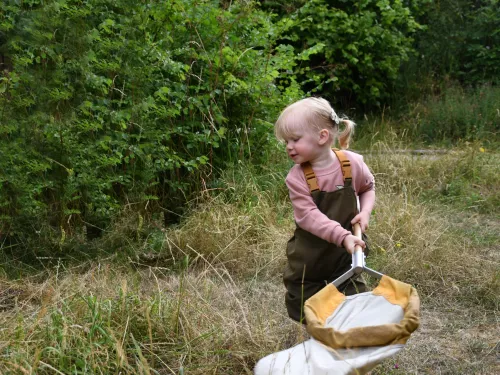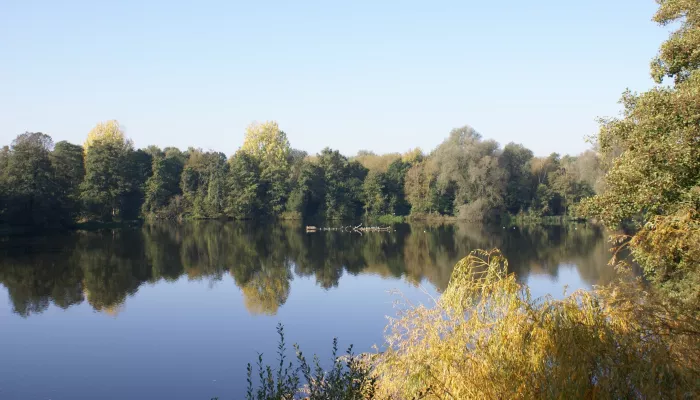
Nature Tots Sevenoaks (Nov/Dec - Monday morning)
Nature Tots is Forest School tailored specifically for little ones, and can inspire a love of nature that lasts a lifetime.

This 73 hectare site was the first example of a gravel pit site being developed for the purpose of nature conservation. It is home to a diverse range of plants, fungi, birds and dragonflies & damselflies.
Winter opening hours: Please be aware that from Monday 30 September the Visitor Centre and its facilities will be open Wednesday-Sunday, 10am-3pm. We will however be open everyday over the October Half Term Week. The nature reserve remains open daily dawn-dusk. Volunteer work parties take place each Tuesday. If you are concerned about disturbance, please consider coming on another day.
Best time to visit: All year round.
RingGo: 32509 | Phone: 02030 460010
Sevenoaks Wildlife Reserve lies immediately to the north of Sevenoaks. The reserve was the first example of a gravel pit site being developed for the purpose of nature conservation. This restored former quarry is owned by Tarmac and leased to Kent Wildlife Trust under a long term agreement for the benefit of wildlife and enjoyment of all. It is a spectacular site for birds, as well as dragonflies and damselflies there is also a diverse community of plants, fungi and other wildlife, including creatures of the night such as bats and glow-worms. So far well over two thousand species have been identified and more are regularly being added to the list. This pioneering nature reserve covers 73 hectares and comprises five lakes surrounded by woodland, there are a few ponds, seasonally flooded pools as well as grassland and small areas of reedbed, the clear water of river Darent flows through the northern part of the reserve and supports a reasonable population of invertebrates and fish.
The deeper lakes attract all the common wildfowl which are especially abundant in the winter. Surface feeding duck such as teal and shovelers tend to frequent the shallower areas. Waders such as green and common sandpiper, greenshank, lapwing and little-ringed plover can be seen around the muddy edges of the shallow water. The last two species nest on the reserve. Grey herons are resident and other birds like kingfisher, grey wagtail can often be located. Birds such as reed bunting and reed warbler can easily be seen in the reedbed in the summertime.
The trees and scrub support of breeding perching birds, including the common garden birds, warblers such as chiffchaffs and blackcaps, woodpeckers (all 3 species including the lesser-spotted are found here), treecreepers and bullfinch. In the winter the alder trees attract flocks of siskins and redpolls.
The Jeffery Harrison Visitor Centre has been the starting point for thousands of visitors to the reserve since 1987. The centre houses displays illustrating the prehistory and history of the site, the creation of the reserve, its habitats and the wildlife that they support. In addition, the Visitor Centre can advise you on how best to enjoy your day at the Reserve, highlighting recent wildlife sightings, walks and trails and forthcoming events. The Visitor Centre has an indoor seating area and a café serving hot and cold drinks, ice creams and sweet snacks. There is also a shop area selling local produce, bird food and accessories and a great range of Hawke Optics binocular and scopes which we are happy for you to test onsite so that you get the right optic for you.
Adjacent to the Centre there is a fully accessible bird hide looking over the West Lake, as well as a picnic area with two accessible picnic tables a sensory elemental garden and wild space to explore.
BBQs and fires are not permitted on the reserve.
• Site of Special Scientific Interest (SSSI)

Nature Tots is Forest School tailored specifically for little ones, and can inspire a love of nature that lasts a lifetime.

Nature Tots is Forest School tailored specifically for little ones, and can inspire a love of nature that lasts a lifetime.